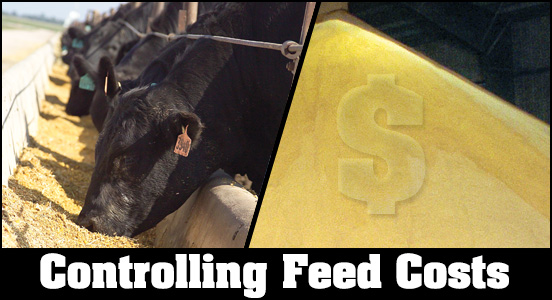
Distillers' grains spoilage doesn't affect feedlot performance.
As production costs have crept higher and higher, the use of grain-milling byproducts has helped many cattle producers maintain a measure of control over feed costs. Wet distillers' grains with solubles (WDGS) have become a popular ingredient for growing, finishing and cow-wintering rations. Typically considered a challenge to WDGS use, however, is the product's susceptibility to spoilage, particularly during warm weather.
Because WDGS are delivered in semi-load quantities, some operations have trouble feeding all of a load before spoilage occurs. Producers might also wish to take advantage of seasonal price fluctuations, since demand and price typically decline in the summer. Stocking up then may provide significant savings, but considerable spoilage is likely to occur if the supply is stored for very long.
Storing WDGS in silo bags shuts out oxygen and controls spoilage, but many producers would prefer less costly storage in a bunker. Producers and researchers have experimented with different ways to minimize spoilage and extend bunker storage times for WDGS. Now, University of Nebraska–Lincoln (UNL) research scientists have evidence suggesting spoilage probably doesn't matter as much as most folks thought.
According to UNL Extension Feedlot Specialist Galen Erickson, studies were conducted to determine the effects of feeding spoiled WDGS. After uncovered storage in a bunker, WDGS with the typical spoiled "crust" was incorporated into rations fed to cattle on a finishing diet. Erickson says the WDGS consumed contained about 7% spoiled product, on average. The steers' performance was compared to that of steers finished on rations containing unspoiled WDGS that had been anaerobically stored in silo bags.
Comparisons made during the study showed how WDGS spoilage affected nutrient composition, compared to unspoiled WDGS. Despite decreases in total dry matter and levels of some nutrients, WDGS spoilage did not hinder average daily gain, final body weight or feed conversion during the finishing period.
"With spoilage of bunker-stored distillers' grains (WDGS), we did lose about 12% dry matter. We lost a little fat and a little crude protein, but little else changed," Erickson says. "With finishing cattle, the dry-matter intake was not different (than when unspoiled WDGS was fed) and spoilage had no effect on performance."
Also conducted were experiments to determine the effects of feeding spoiled WDGS to calves grown on a high-forage diet. Dry-matter intake was lower when spoiled product was fed, but there was minimal impact on average daily gain and no effect on feed conversion.

[Click here to go to the top of the page.]











